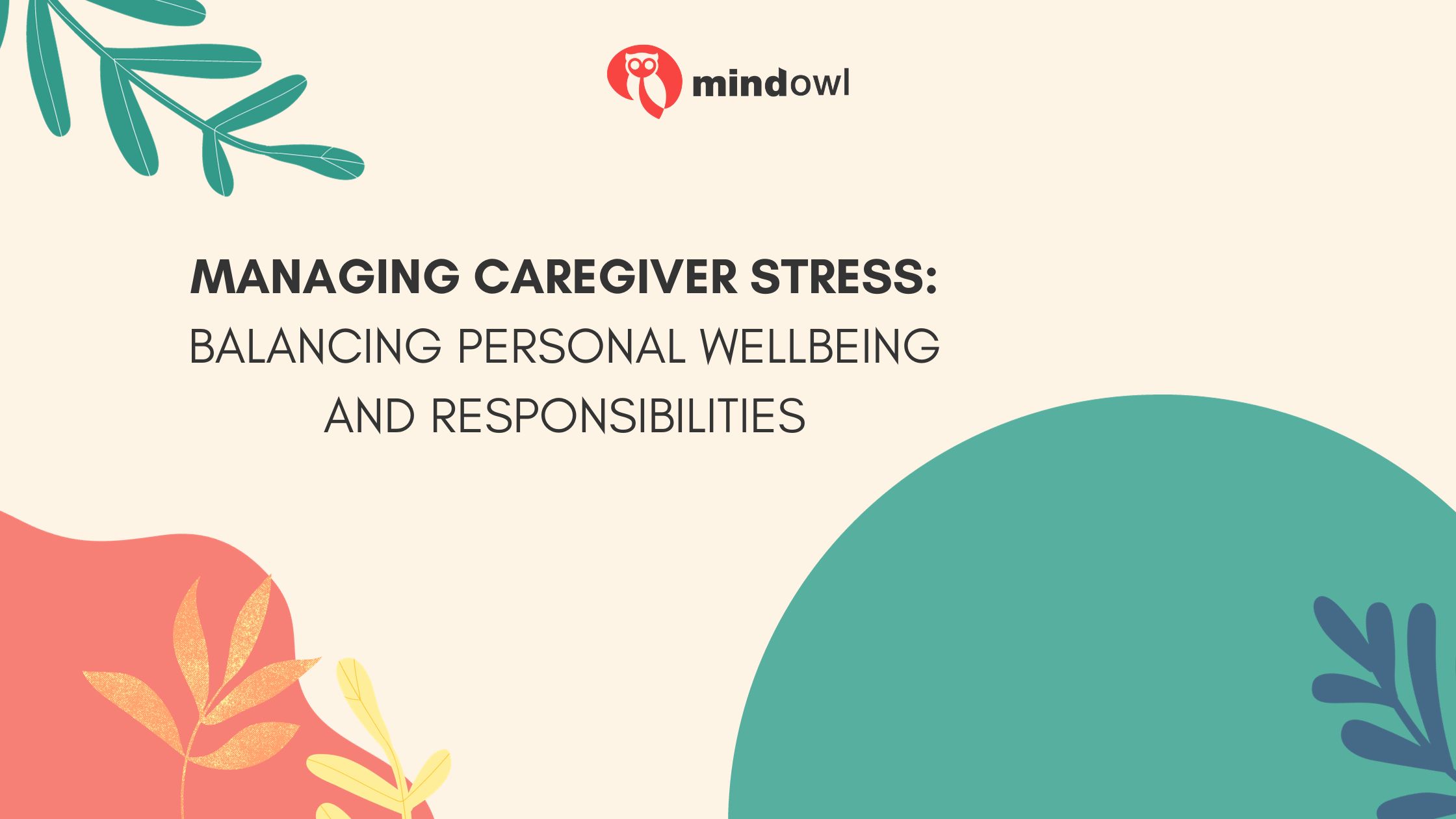Caring for a loved one can be a rewarding experience. The love and appreciation that blossoms from aiding someone in need can bring immense joy. But let’s face it – caregiving can be heavy lifting, too, both emotionally and physically. Caregivers must balance managing their stress levels and fulfilling their responsibilities effectively.
Understanding Caregiver Stress
This constant worry can lead to a personal environment where stress thrives, and unfortunately, burnout looms. Caregivers can experience symptoms like constant fatigue, mood swings, and sleep deprivation. They might also face more severe manifestations, such as anxiety and depression. The wealth of responsibilities and the emotional magnitude of seeing a loved one in need can weigh heavily on a caregiver’s heart and mind.
This emotional, mental, and physical toll doesn’t just affect the caregivers’ well-being; it can also impede the ability to provide adequate care, creating a vicious cycle that can seem hard to escape from. This is why managing stress and ensuring personal well-being isn’t just an option – it’s necessary for every caregiver.
Importance of Balanced Self-Care while Caregiving
Just like superheroes, caregivers often put the needs of others before their own – pouring from their cups until they’re running on empty. But even superheroes need to recharge to be at their best. The importance of self-care in a caregiver’s routine is much like the sun in a solar system – irreplaceable and crucial.
This balance of self-care fuels the energy to provide adequate care and ensures the caregiver’s roadmap to personal health and happiness remains intact. Ultimately, the key to sustainable caregiving lies not in donning the cape of selflessness alone but in the subtle art of filling our cups.
Practical Tips for Managing Caregiver Stress
For caregivers, balancing self-care with many responsibilities may seem like navigating a winding road. However, integrating a few practical strategies can pave the pathway toward effectively managing stress and the demands of caregiving. Here’s a handy list for every caregiver seeking that balance:
- Set Boundaries: Embrace the power of ‘no’ and learn to draw lines where necessary. Remember, it’s okay to prioritize your well-being;
- Allocate Personal Time: Setting aside ‘me-time’ is critical no matter how busy you get. Indulge in activities that nurture your soul — reading, cooking, or simply breathing in the quiet of early mornings;
- Implement Time-Management Techniques: Master the art of time management, delegate tasks when possible, and filter out priorities to avoid the overwhelming flood of responsibilities;
- Make Healthy Choices: Your body is your fortress. Protect it with regular exercise, a balanced diet, and sufficient sleep;
- Practice Mindfulness or Meditation: Incorporating mindfulness techniques or meditation can help center your thoughts, levitate your mood, and enhance your overall sense of well-being; and
- Ensure Restful Sleep: Every superhero needs rest to regain their strength. Prioritize quality sleep as it’s crucial for your body’s rejuvenation and healing process.
Enlightening the road to effective caregiving, these tips carve out a path for preserving your health while you pour out love and care for your loved ones.
The Benefits of Support Networks
Indeed, building a network for support and assistance in the caregiving journey can alleviate a lot of stress. Here are some ways to construct and utilize such a network:
- Family & Friends: Seek emotional support or practical help from your friends and family. They can assist with tasks, provide company for your loved ones, or just lend a listening ear when you need it;
- Caregiver Support Groups: Joining these groups can be very beneficial. Share experiences, exchange ideas, and learn from others going through similar journeys;
- Professional Counselors or Therapists: For more profound emotional distress or anxiety, don’t hesitate to reach out to professionals. They can provide coping strategies and lend an objective perspective;
- Community Resources: Tap into local community resources. Many communities offer services like respite care, meal delivery, or health services that can ease caregiving duties; and
- Online Communities: Explore online platforms where caregivers share their experiences and offer advice. Online communities are a great source of comfort and support, especially when meeting in person is challenging.
Remember, asking for help is not a sign of weakness; it’s a strength that shows your commitment to the quality of care you provide for your loved ones. This support system you cultivate will not only ease the caregiving journey but also enrich your life profoundly.
Seeking Professional Assistance
Experiencing extreme levels of stress or burnout is a clear indication that it may be time to seek professional help. Therapists and mental health professionals can provide the necessary tools and strategies to navigate this emotional terrain, bringing a sense of balance back into your life. In addition, understanding legal designations like conservatorship vs. power of attorney can simplify the management of your loved one’s assets and affairs. This not only reduces the administrative burden but can also alleviate anxiety linked to legal complexities. Knowing these legal aspects can be empowering, providing you with a sense of control and peace in your caregiving journey.
Conclusion
Balancing your well-being while fulfilling caregiving responsibilities is like walking a tightrope. But equipped with the proper management techniques, a supportive community, and a caring approach to self, the walk can become undeniably rewarding.
MindOwl Founder – My own struggles in life have led me to this path of understanding the human condition. I graduated with a bachelor’s degree in philosophy before completing a master’s degree in psychology at Regent’s University London. I then completed a postgraduate diploma in philosophical counselling before being trained in ACT (Acceptance and commitment therapy).
I’ve spent the last eight years studying the encounter of meditative practices with modern psychology.

